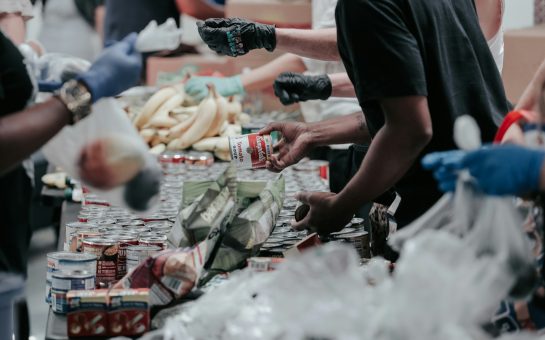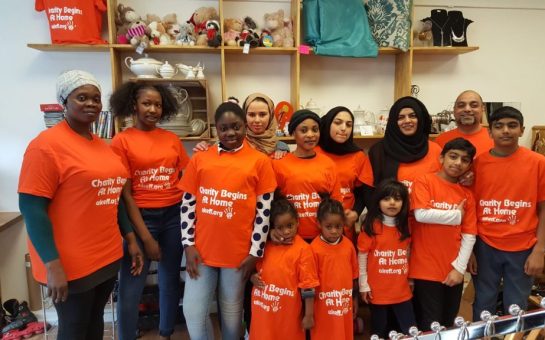Funeral costs have nearly doubled in the last decade – yet a bill to ensure ‘simple funerals’ are available to those who need them is being heard in Parliament today in a bid to tackle spiraling crisis.
More than 80,000 people across the UK face ‘funeral poverty’ each year, and these figures are only getting worse.
Labour MP Emma Lewell-Buck presents her Funeral Services Bill before parliament today, which would encourage funeral directors to offer a ‘simple funeral’.
The bill comes following revelations that the cost of dying has jumped seven times the rate of inflations in 2014.
Life planning and insurance company Sunlife’s report reveals that the cost of dying soared by 10.6% in 2014 to an average of £8,427.
As Parliament debates the bill, MM discuss the issue of funeral poverty with funeral directors, social projects who provide funeral planning support and one University of Manchester graduate with a novel approach to buying coffins…
Down to Earth are a London-based project started by Quaker Social Action, an east London-based anti-poverty charity.
They offer practical assistance to those on low incomes to cope with the unexpected costs of funeral planning.
Fiona Singleton, manager of Down to Earth, said: “Someone taking our financial awareness course ended up losing his tenancy through rent arrears caused in part by the debt he accumulated by paying for a funeral.
“The average cost of funeral ranges from £1,500-£3,000 upwards. Only around half of those who apply for the social fund are granted it.
“A decision can take up to six weeks, so people often have to go ahead and organise a funeral without knowing whether they will receive a grant or not.”
The rate of inflation and stagnation of statutory funding means that the shortfall can often be in the region of £700. Stagnation in funding, along with the lack of transparency and regulation within the industry are the three main issues.
Heather Kennedy, funeral poverty officer at QSA, said: “The funeral industry is unregulated so we are encouraging them adhere to this pledge that protects consumers as well as preserving the funeral director’s own reputation.”
One former University of Manchester student has created a novel approach to tackle the situation.
Entrepreneur Steven Mitchell created price comparison site comparethecofffin.com, where users can browse and choose from hundreds of coffin designs and caskets, including more wacky designs such as a branded Mr Kipling’s bakewell coffin.
Customers can personalise their plan as little or as much as they want and it is put out for tender to listed funeral directors in their area who bid to win business.
Steven’s motivation for comparethecoffin.com was death itself and the experience of having to arrange a funeral and the related costs.
“The Co-op’s service was terrible. It is not a time to negotiate and before you know it; you are doing their plan and you’re paying for it.
“Being on a low income and having to deal with funeral costs is a huge burden. The fact is that when it comes to death, people do not want to appear cheap and often do not want to ask about price.”
Steven has reported a steady growth on the site since it was launched in 2013 and claims his solution is a direct, cost saving tool with a great deal of choice.
“I am usually the first person a customer speaks to. Quite often they phone me up and ask, ‘is this real?’
“I am giving people a mechanism to plan for death and a way to save on costs. On average we can save people between £300-£1000.
“I’m not doing it for money. If everybody used comparethecoffin.com, it would save half a billion a year. There are half a million funerals a year and I am the only one doing this.”
Funeral Director Frank Barrett has been in the business for 30 years and runs Manchester based funeral business Pepperdine and Sons.
He has reported a growing shift in people’s expectations of funerals over the years.
“Funerals are far different now than they were 30 years ago. Many people are doing far more research before seeing us as it’s now readily available,” he said.
“There is far more required now. People want videos and live broadcasts if loved ones cannot make it in person.”
The digitisation of the market and provision of online price comparison tools such as ‘comparethecoffin.com are possibly enabling the funerary market to open up and making the topic of death and planning for it more accessible and affordable.
“There is going to be a market for online services and some who use it and some who don’t,” said Frank.
“It does take away that personal care from the outset that we as traditional funeral services can provide during a difficult time, but an online tool does help to make costs more transparent.”
But according to funeral poverty officer Heather, the message is simple.
“Everybody dies, but, because of funeral poverty death is no longer the great equaliser,” she said.
“We cannot imagine that anybody would want their death to tip their relatives into debt and all the distress that it causes.”
Image courtesy of Rob Jessie Stankey, with thanks.


